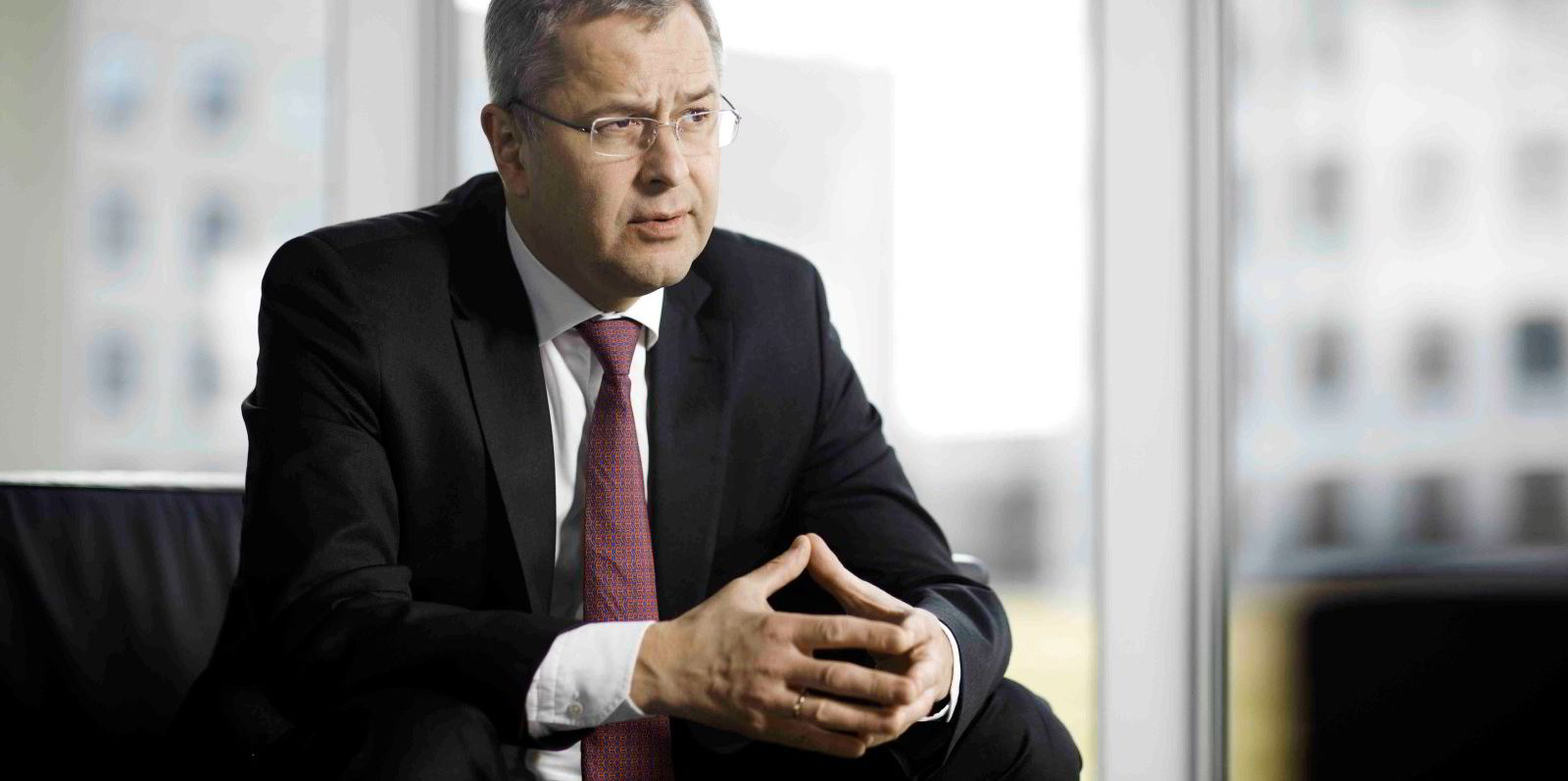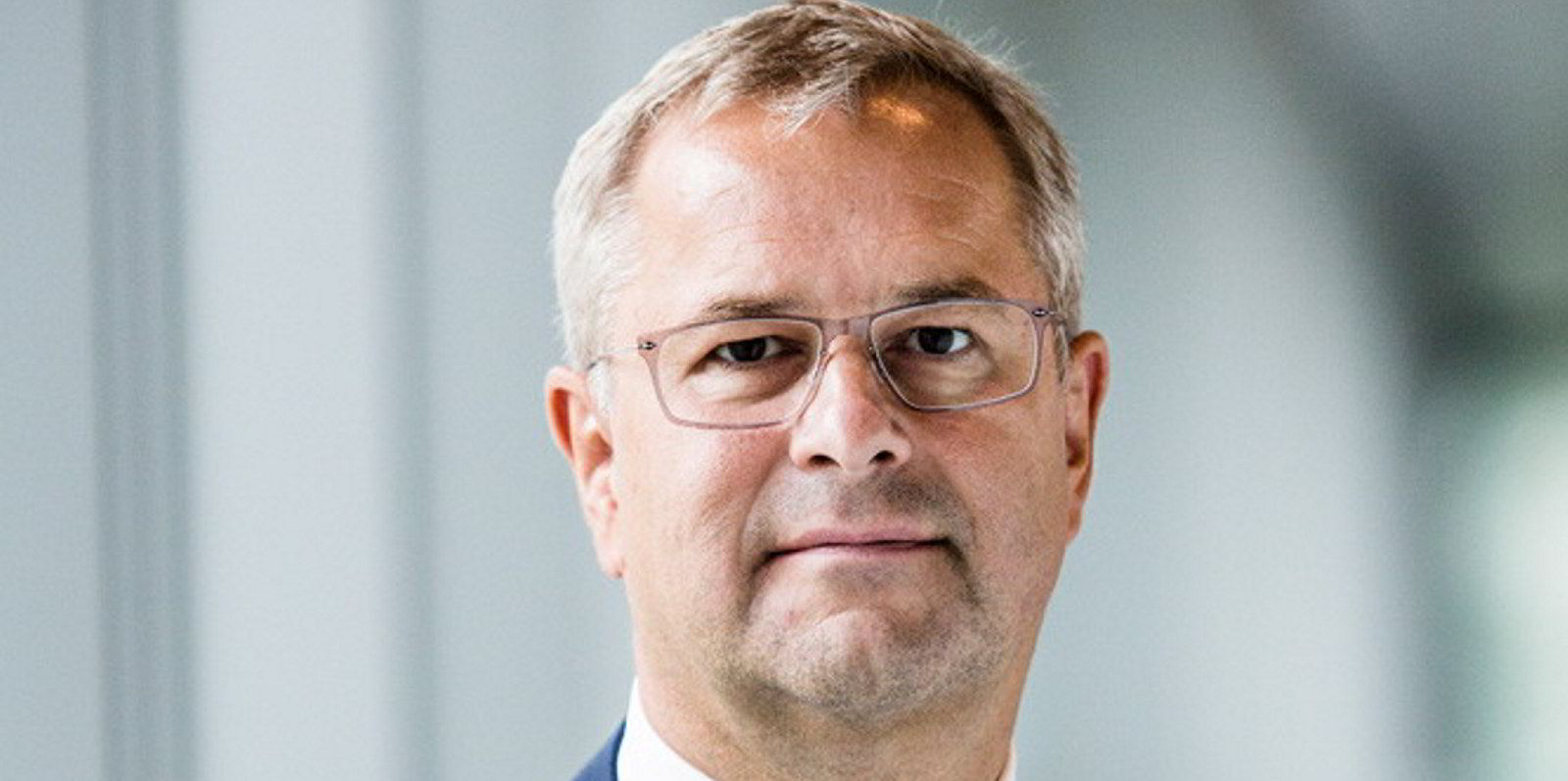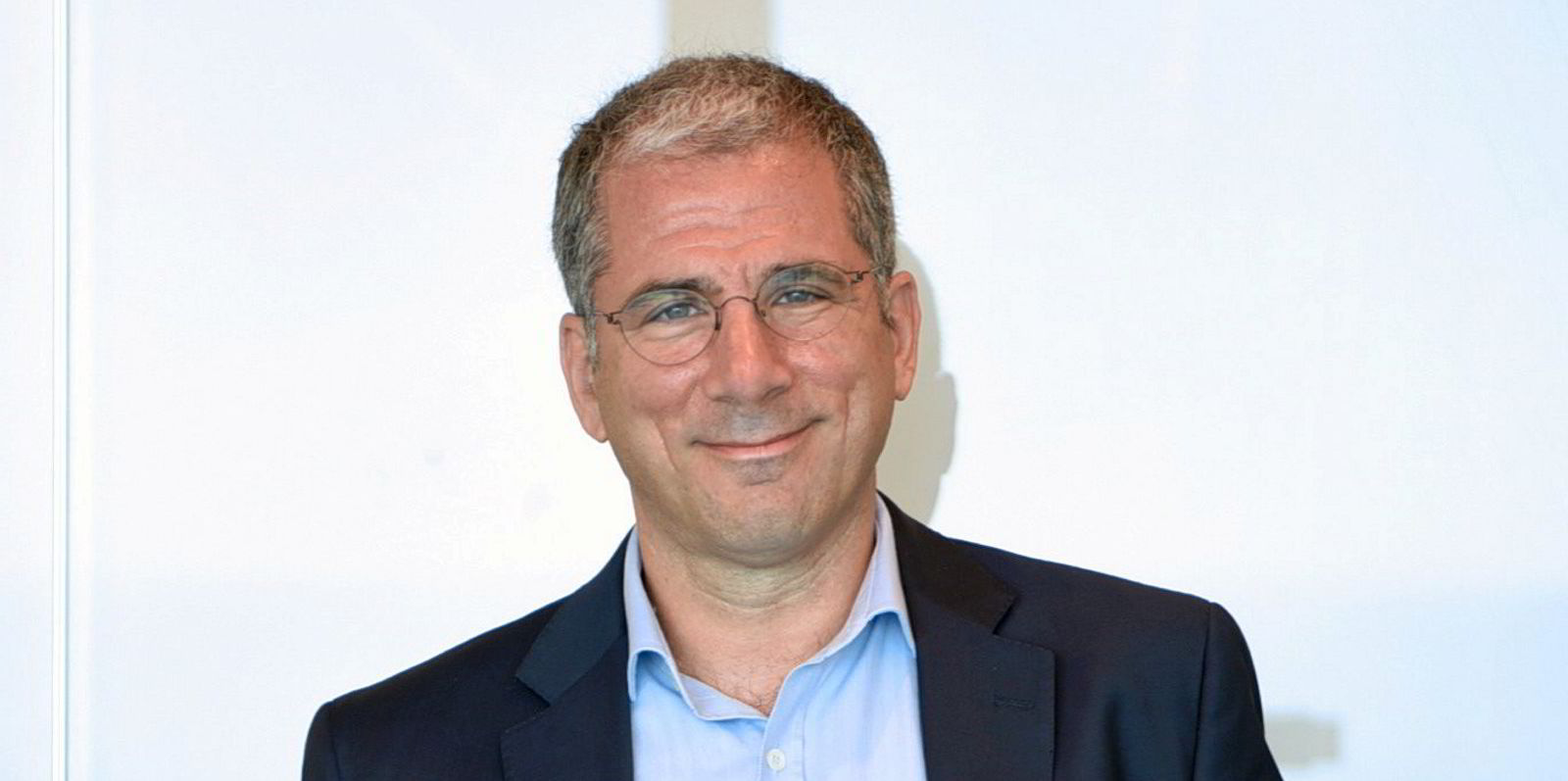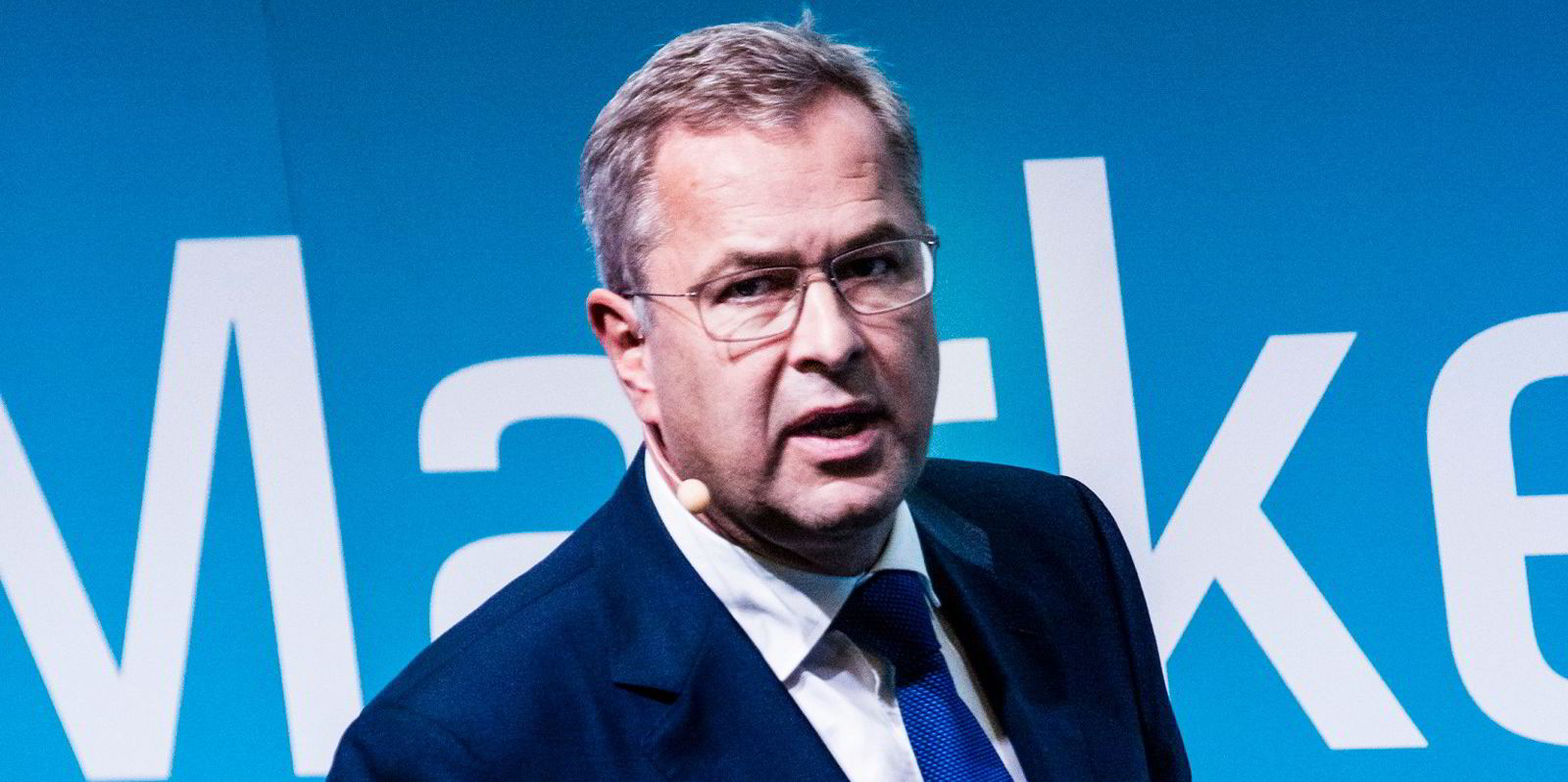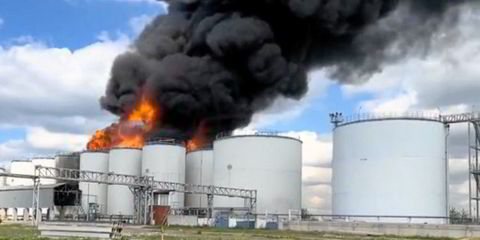AP Moller-Maersk has declared it will not follow the lead set by rival leading container carrier CMA CGM in ordering LNG-fuelled big new boxships.
Maersk chief executive Soren Skou said: “We don’t believe that LNG is going to play a big role for us as a transition fuel. It is still a fossil fuel and we would rather go from what we do today straight to a CO2-neutral fuel.”
Presenting the Danish group’s third-quarter earnings presentation, Skou added that Maersk has no plans to build any more of the largest 20,000-teu-plus vessels. Instead, it will maintain its fleet capacity at about a current 4m teu for the foreseeable future. However, it sees a need to replace some of its 10,000-teu to 15,000-teu ships as they age because it is more cost effective to own rather than charter them.
“We are very much aware of the technology risks for ordering ships at this point,” Skou added.
“We would ideally like to figure out, and that is what we are working very hard on, what the future fuel should be and then start building ships that will fit that type of fuel when we need them.”
But he also said he suspected that “will be years out in the future”.
Earlier on Wednesday, TradeWinds reported that French line CMA CGM said it expects other major carriers to jump on the LNG bandwagon as bunkering facilities open around the world.
"CMA CGM may be the first, but will not be the only one," said Farid Trad, chief of staff to the company's chief executive and chairman, Rodolphe Saade.
The company crossed a milestone when it completed the bunkering of the LNG-fuelled, 23,100-teu CMA CGM Jacques Saade (built 2020) in Rotterdam on 13 November.
Meanwhile, Skou said Maersk has “absolutely no plans” to merge with or acquire other carriers and aimed to keep its capital expenditure below depreciation levels. This year, it expects capex to be around $1.5bn.
Maersk predicts another strong quarter in the final three months of this year, after group Ebitda grew to $2.3bn in the third quarter, a 39% jump from the same period of 2019.
Liner operations benefited from strong freight rates, which rose by $284m over the period, and lower bunker costs, which sank by $312m. Those improvements more than compensated for reduced cargo volumes from as the coronavirus pandemic caused market volatility.
Skou said the carrier expects freight rates to increase in the Asia-Europe trade, after a particularly strong quarter this time in the transpacific arena where it has less exposure than some of its rivals.
But he dodged a question over whether regulators in Asia are looking at the sharp rise in freight rates.
Maersk expects to benefit from high spot market levels positively impacting contract rate negotiations in the fourth quarter, and predicts hard hit Latin American markets will see volumes rise again over the next few months. Freight volumes could be back at 2019 levels during 2021, the company added.
The coronavirus pandemic has seen digital bookings through its Maersk Spot system rise to 53% of short-term business, from 24% pre-Covid-19. Skou said forwarder bookings accounted for about 80% of the Maersk brand’s spot product.
The carrier has a contract to carry one billion doses of a Covid-19 vaccine. Skou said Maersk would help out as much it could in transporting the medicines, but did not expect their carriage to have a major impact on financial results.
